
I could think of several folk sayings about how the Assassin's Creed story has become "overblown". Particularly in the until recently recent game, AC: Valhalla, one realizes that there is no longer any moderation in what Ubisoft wants to present. Just content for content, regardless of the quality of writing and substance. It's no coincidence that being a huge fan of the series, Valhalla I couldn't stand it and gave up after the first few hours, cringing at the mere idea of how many hours I'd have to waste in order to one day see the end credits rolling.
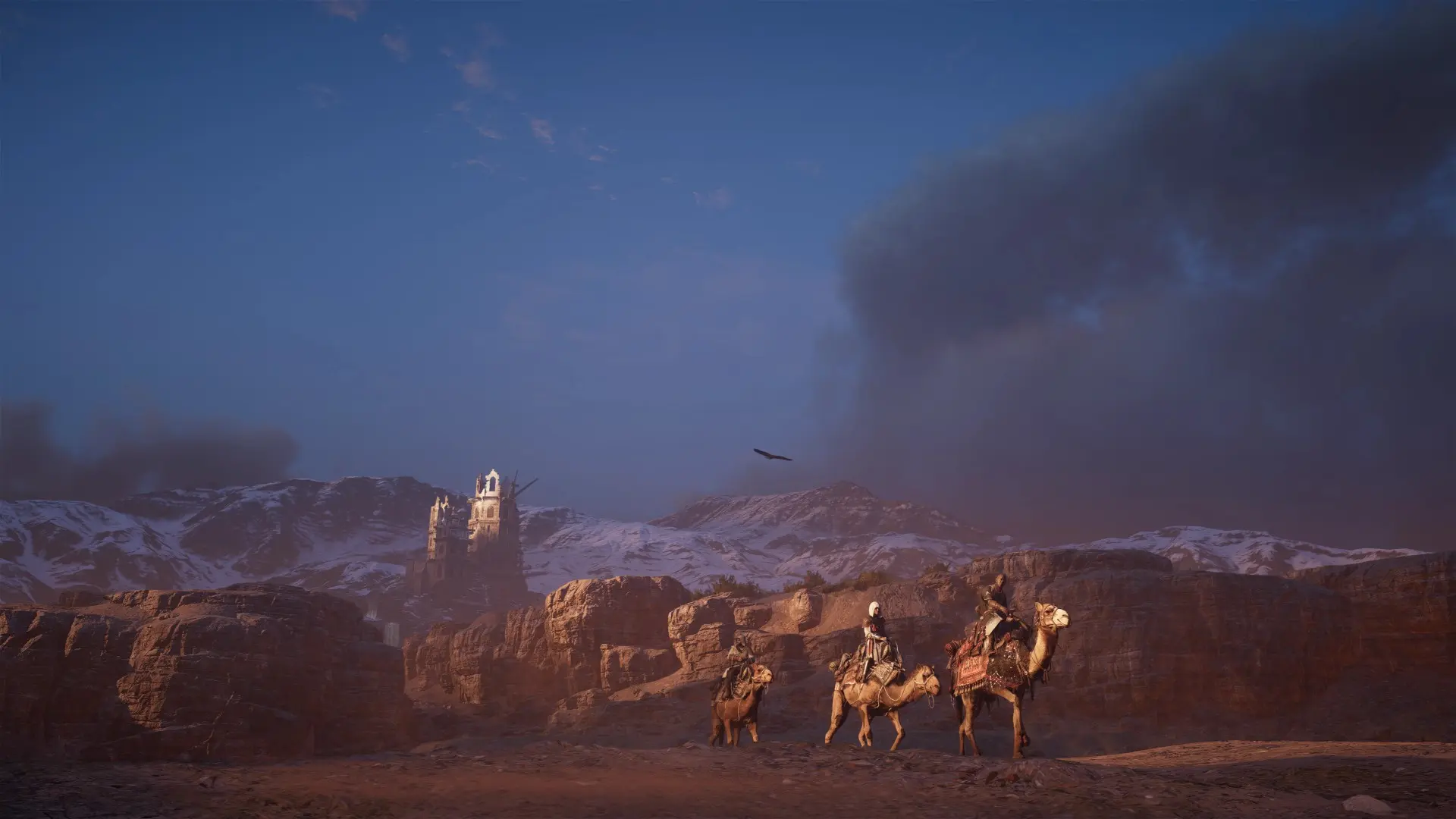
Apparently, I wasn't the only one who felt this way, as there were other voices among the series' large audience who said that Assassin's Creed had lost its direction. Fine are the RPG elements, impressive the playground sets against the backdrop of various historical eras (Origins, Odyssey, Valhalla), but the heart of the game has always been silent assassinations. Which is exactly what happened, with Ubisoft listening to the audience's demand and coming up with Assassin's Creed: Mirage, which in an alternate reality, could have been the next sequel after Assassin's Creed: Revelations. However, it is set in 2023 and script-wise it doesn't completely cut itself off from the recent past, as it introduces Basim Ibn Is' Haq, who had an active role in the plot of Valhalla and Eivor's Odyssey, as the central protagonist of the adventure.
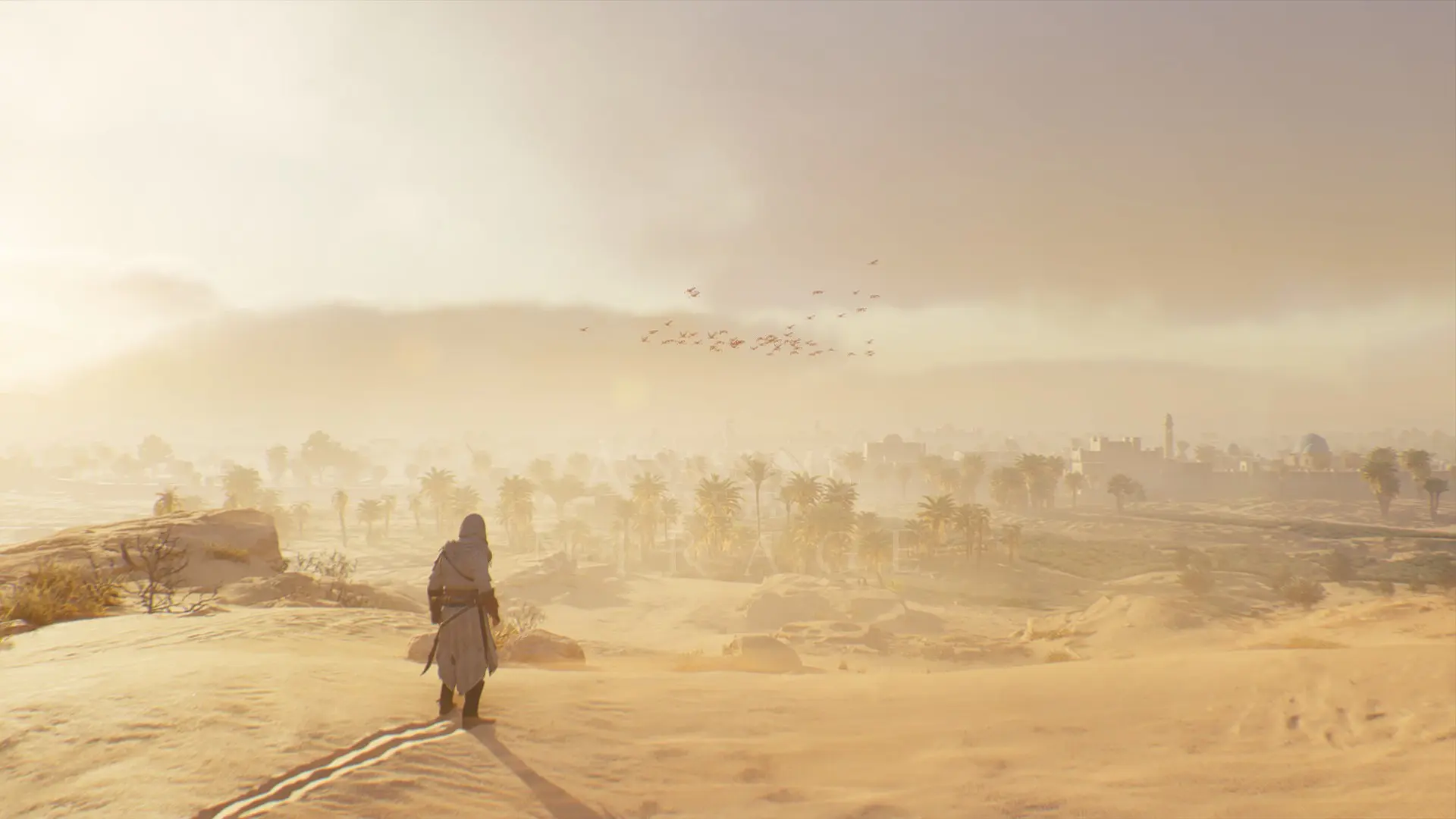
The question is whether this return to the roots is really the adrenaline shot that Assassin's Creed needed to make it exciting again. The answer is clear, and it's no. The reason is that while Assassin's Creed: Mirage adopts the early mechanics of its predecessors that made it famous, namely the emphasis on assassinations and gadgets, accompanied by a complete absence of RPG elements, it also "carries" all their problems with it, as if not a day has passed since 2012.
Starting from the premise, things are more or less known, as we are in Baghdad in 861 AD, a few years before the events of AC: Valhalla. Without straying from the trivialities of the Hidden Ones (essentially Assassins, before they were called that) chasing the Order and the Ancient Ones, AC: Mirage crafts a plot that is pleasant to follow, but not at all unpredictable. Peoples in desperation, intrigue, treachery, certain supernatural elements, the formula is all too familiar. But Basim is not a character that will be remembered in history, as Ezio Auditore did, for example, due to the fact that he is presented as rather one-dimensional, without any particular flare and indifferently mysterious. In general, the level of writing, both of the protagonist and the rest of the characters in the story, is just average, in the usual context of Ubisoft's latest games that is.
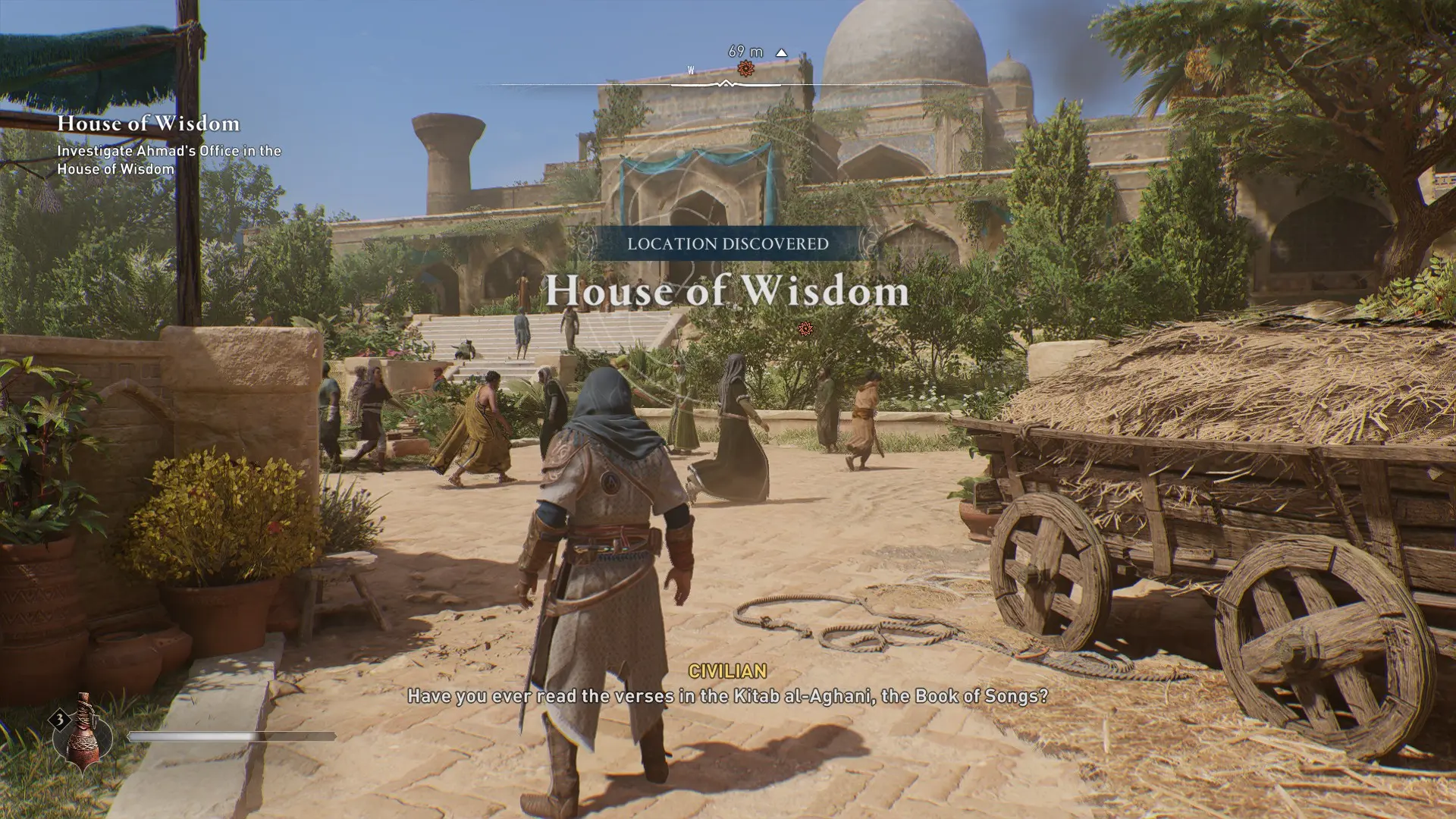
However, AC: Mirage proves that its old (pre-Origins) mechanics, while outdated, are still a lot of fun. The primary component of the gameplay is stealth, which we rely on to complete our objectives. As usual, we have to hide in the shadows or high vegetation, away from prying eyes, while if we wish, using some tokens earned from missions or stolen from passers-by (there is a pickpocketing QTE), we can have the help of "external" factors (mercenaries, musicians, etc.).
If circumstances demand it, we can engage in combat, but it's disappointing in its implementation, as it's based on a rudimentary dodge and parry pattern, which can be used to take out an entire garrison if you're quick. However, this is not advisable, as the notoriety system lurks, often with the crowd finger-pointing our position at the guards, intensifying the melee. In this case, and to reduce the risk of notoriety, it is enough to run away from the event (preferably on the rooftops of houses), take down the posters with our portrait (ha, did you miss it?) or bribe the local teller with a token. In general though, AI's behaviour is quite "crippled" whether we move in stealth mode or during combat, resulting in low difficulty level flights.
However, it's notable that these objectives are not as heavily repeated as in other titles in the series, although they revolve around the search for clues using the familiar eagle vision (or auxiliary bird/"drone"), the tracking of important people, and their assassination. However, all of the missions we undertake, whether primary or secondary (via optional contracts) do not offer any kind of innovation in their design, as we have seen them many times before.
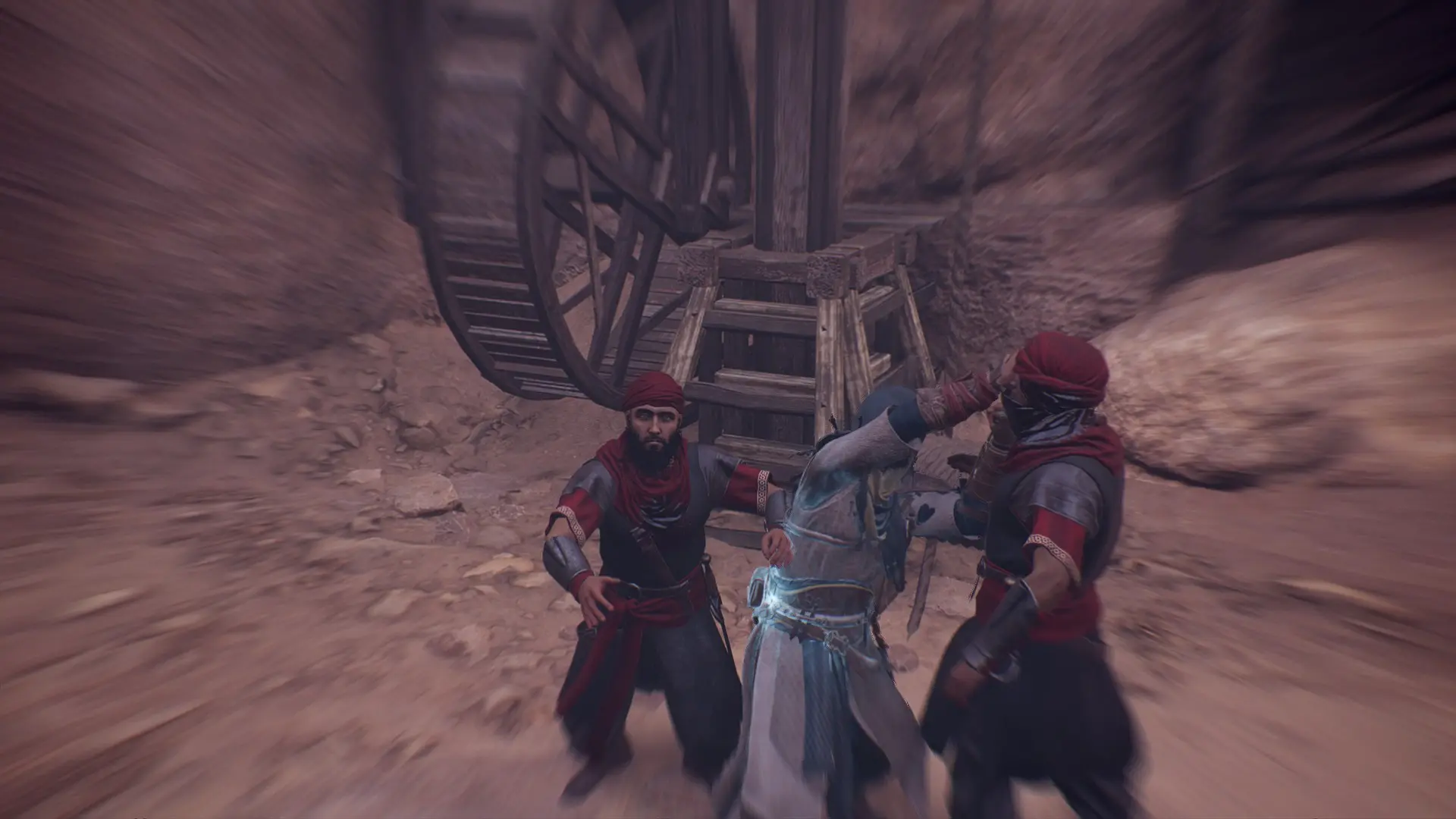
It's just that, this time, I get the impression that a lot of care has been taken by the developers so that the gameplay doesn't become monotonous and extremely repetitive. And to a certain extent, I can say that it succeeds brilliantly, especially after the first, "cold" hours. This is helped by the fact that, as pointed out, there are no experience points, so it's not necessary to grind to improve Basim's features, and the rudimentary skill tree included is upgraded with skill points awarded at certain points in the game (usually after completing an "important" kill). Hence, what we do is to place the points in the skills we are interested in, depending on the play style that suits us.
In addition to the skill tree, tools are an important aid in achieving our goals. There are six in total, ranging from throwing knives and smoke bombs to noisemakers and traps, which of course are acquired gradually and can be upgraded by spending a quantity of resources collected during our wanderings. The equation factors "resources" and "upgrading" is not only limited to tools, but also to Basim's equipment (sword, knife, armor), however it is not overstaying its welcome and does not require exhaustive research/grinding in order to acquire them all.
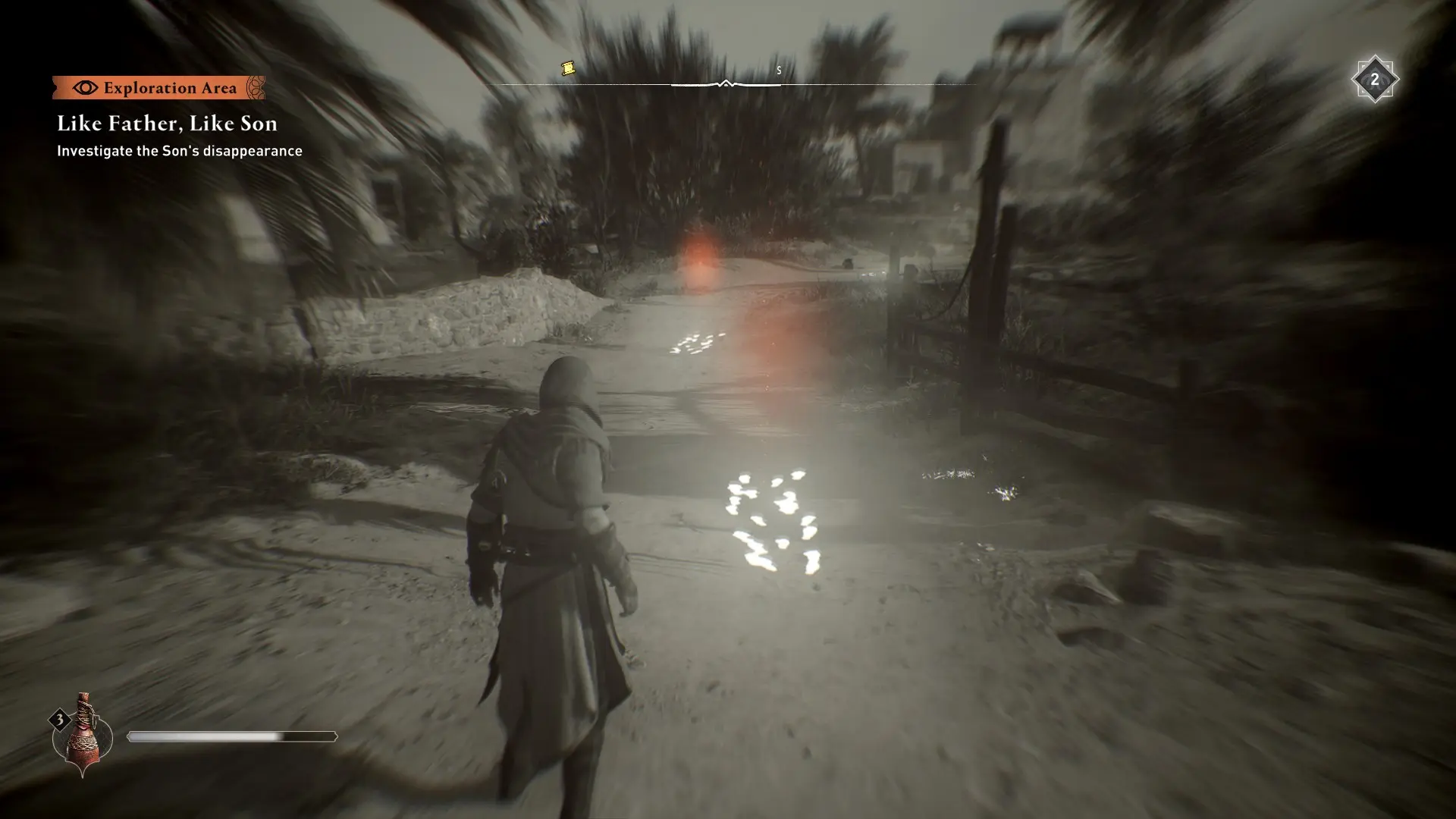
In general, AC: Mirage wraps in a well-condensed package, at least compared to its vast predecessors, both in terms of map size and the overall length of the central story, which ranges between 15 and 20 hours. Of course for completionists, that number increases, but by no means is it going to keep you occupied for more than 30 hours. The more linear approach that Ubisoft has attempted was, in my opinion, highly welcome, as the game doesn't "overwhelm" the player with dozens of pieces of information and hundreds of icons arranged on a huge map, and the optional content is as much needed that the player is not significantly distracted from their ultimate goal. I had missed something like this in an Assassin's Creed game, and I was glad that at times, Mirage reminded me why I once loved that series.
However, I couldn't leave out the fact that, technically at least, AC: Mirage is not impressive, being a game that can even run on PS4, which is evident from the very low hardware requirements. Therefore, a modern system will have absolutely no problem running it with all the settings at maximum, with the result being satisfactory but a generation behind.
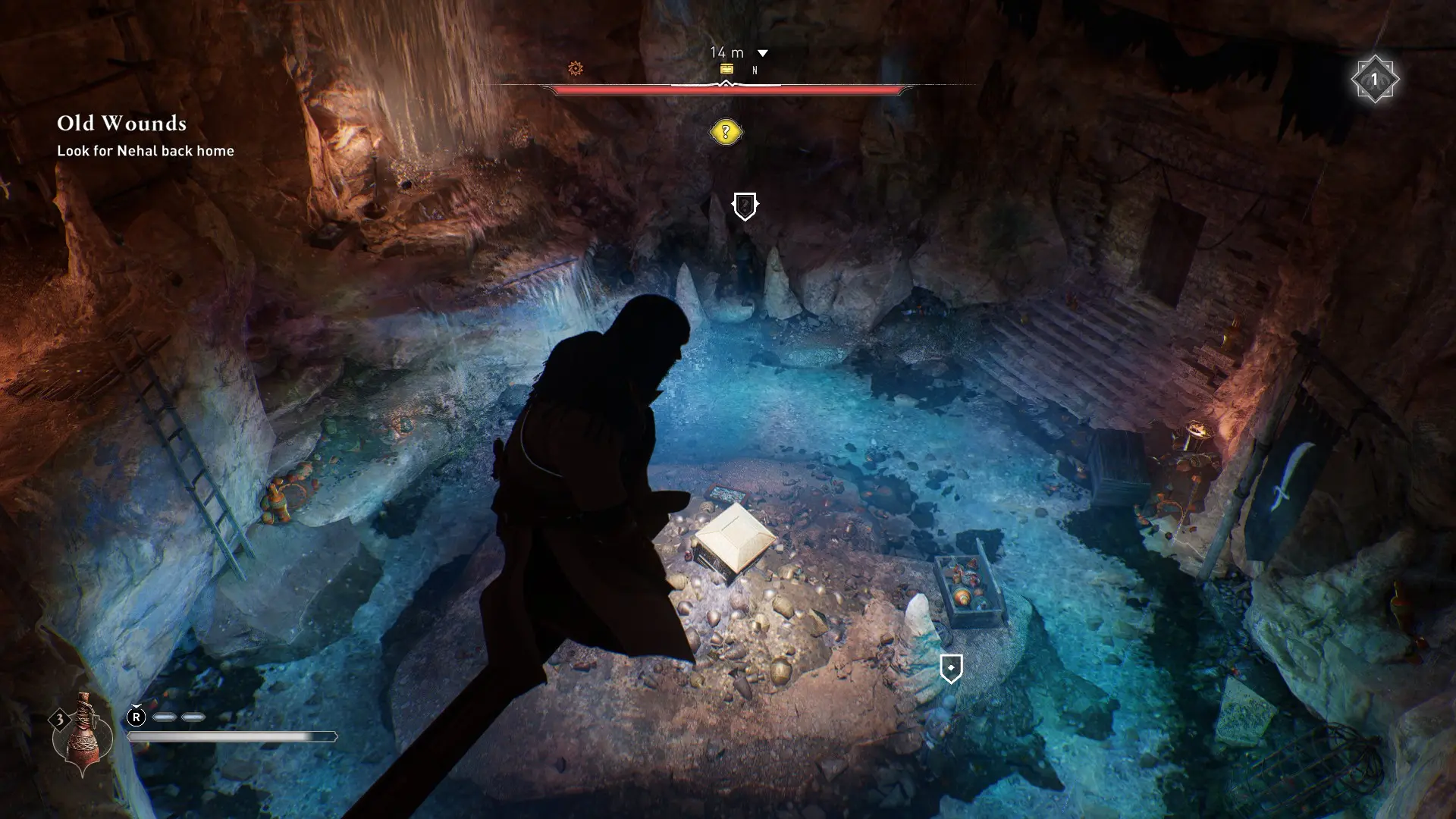
In short, AC: Mirage is a title that delivers what was promised from the moment it was announced. Like a reunion of an old band, a return to the roots of the series in almost all areas, offering a nice dose of the familiar formula, but that's about it.
RATING - 78%
78%
It's like meeting an old friend again after years. You know and acknowledge his quirks, but at the same time you enjoy his company.












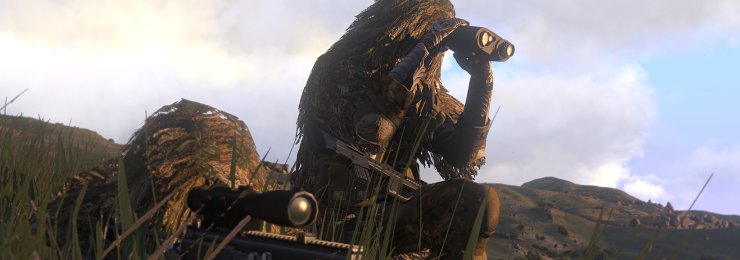

data-trpgettextoriginal=20 comments